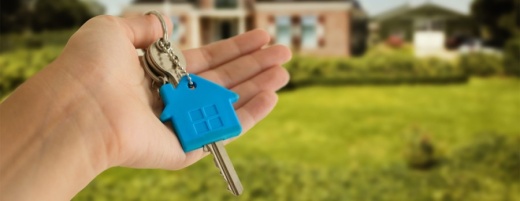The city of Friendswood issued 1,787 permits for Harvey repairs in 2017, an inundation that caused the city to bring in additional help, Chief Building Official Brian Rouane said.
Some of those permits are still open, meaning that the work on the homes has not been completed. However, this is not unusual for this type of permit, especially after a storm such as Harvey, which required the city to work with the Federal Emergency Management Agency to process permits, Rouane said.
However, the number of unfinished homes in a neighborhood has not negatively affected Friendswood real estate at all—at least, not after 2017, Stanfield Properties Operations Manager Frances Caballero said.
Caballero is also a real estate agent who has sold in Friendswood for years. She said she was concerned Harvey would affect the real estate market long term, but 2018 ended up being the best year the company had seen, she said.
According to data from the Houston Association of Realtors, 907 homes were sold in 2018 in ZIP code 77546, more than the number of homes sold in 2016 or 2017.
While 2018 was the best year the company had in sales, Caballero already considers 2020 a defeat due to the coronavirus pandemic, she said.
“To me, COVID[-19] is a way bigger deal. People are going to lose jobs, and jobs are what sell homes,” Caballero said.
Caballero said job loss or a lack of flood insurance during the storm could be reasons damaged homes were left unfinished after Harvey.
“Things victims have as far as resources is what is probably extending this [process],” Rouane said. “Some cases may be that people didn’t have flood insurance, so this would have been out of pocket.”
But having unfinished homes on the block does not adversely affect neighborhoods on the real estate market, Caballero said.
Several buyers even sell gutted homes, which sometimes sell faster than complete homes and even result in bidding wars, she said.
In 2018 alone, Caballero estimates Stanfield Properties sold 146 homes gutted, or “as is,” she said.
“If they are selling for $130,000, they end up selling for $155,000. It’s an interesting trend in Friendswood,” Caballero said.
In Friendswood, many buyers are familiar with the term “first-time flood,” which describes a property that flooded for the first time during Harvey, Caballero said.
These homes are often purchased quickly, as they have been recently renovated, Caballero said. But even homes that have flooded multiple times are still purchased quickly.
“We still have buyers in Friendswood ask if the house did flood. It does affect them in that it takes them longer to sell, but it does still sell,” Caballero said.
Caballero said the reaction after Harvey was unexpected for her.
“I was scared,” she said. “I thought, ‘Six months from now, we are going to have this huge glut of remodeled homes because everyone wants to bail out of Friendswood,’ and it simply did not happen.”
Friendswood has four characteristics that make it attractive to buyers and homeowners, Caballero said: geography, high-performing school districts, low tax rates and a small-town feeling.
“Friendswood is still trying hard to keep that small-town feel, and we are really the only suburb that has that,” Caballero said.






